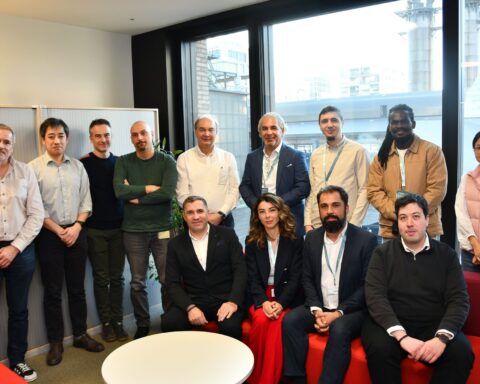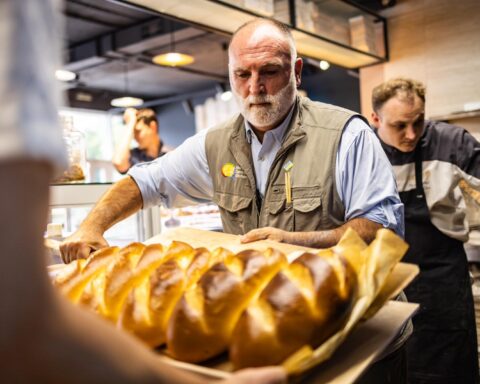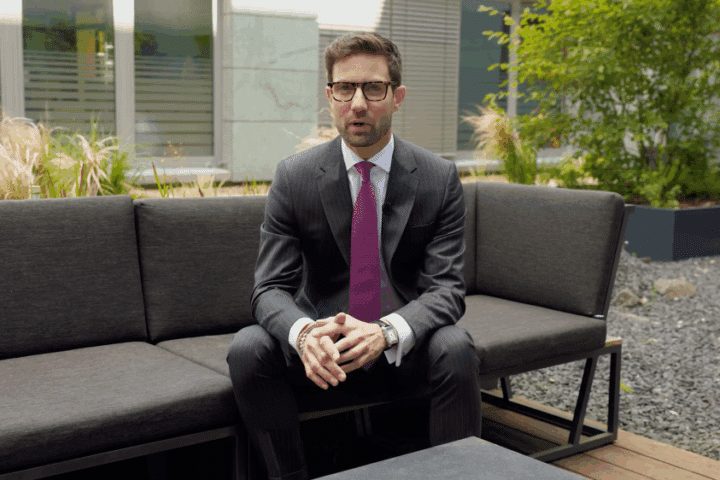This video is available in multiple languages with lip sync.
French (Original):
English:
Bridging hospitality and officialdom
Steve Martellini, secretary-general of Horesca, the trade group for restaurants, hotels and cafés in Luxembourg, says the organisation is pursuing dialogue to ensure that regulatory and government officials as well as political groups understand the ambitions and challenges of the sector.
What does Horesca do, and what is its approach?
We are the only organisation representing all hotels, restaurants, cafés – and also food trucks – in Luxembourg, and defend the interests of our around 1,350 members with the authorities and the state. For example, we have seen a change in attitude at the country’s labour inspectorate, the ITM, following many meetings with the minister and officials, and I think they now really understand what we want. It has been one of our priorities since I took over about a year ago, but member engagement has been my top focus. We went out into the field with the ‘Meet Members’ initiative of company visits. People were very happy to see us and talk about what is happening on the ground, so we can engage on specific topics such as labour law and holidays that our members have to deal with regularly. I know this from my own experience – I started in Vianden, in the Aal Veinen Beim Hunn, a traditional restaurant where we make crêpes over a wood fire, then at our main location, Beim Bertchen in Wahlhausen, also in the north of the country. Two years ago, we took over Köppe Jemp, a traditional Luxembourgish brasserie in Hoscheid-Dickt.
How are you engaging with other stakeholders such as political groups and trainees?
We have regular meetings with political parties and public bodies throughout the year and have also begun meetings with political youth groups. It is really important and interesting to engage with them, to build relationships and discuss what issues we are facing and how we might solve them. We also organised a meeting between all the Michelin-starred and Gault & Millau chefs in Luxembourg and the country’s hospitality school, along with the school’s director, to talk about the issues we face, followed by a lunch served by the students. The chefs got to see what the students are doing, while the latter had the honour of serving the country’s leading chefs. We also discussed the problem of competition from the public sector for young graduates. We understand it is not just about salary but mainly working hours. For public-sector employers you work from 7 am until 3 pm, then you are done. This is not possible in the private sector, but we are trying to find solutions to improve working conditions.
“We represent everyone from small cafés to chain hotels, traditional restaurants and fine dining, and their problems and challenges can vary.”
What risks and opportunities do your members identify?
Our organisation is very diverse – we represent everyone from small cafés to chain hotels, traditional restaurants and fine dining, and their problems and challenges can vary. But almost everyone is suffering from rising energy costs, overall inflation, and increases in water and waste disposal prices last year. The mix is driving margins down, to between 3% and 5% for most restaurants. That is dangerously low – it is impossible to invest and buy equipment. Even with the same number of clients, there is less left at the end of the month. In rural areas, it is particularly difficult, and hotels are gradually disappearing, whereas in Luxembourg City three or four new hotels have opened. We have set up working groups to exchange ideas and talk about the challenges we face to support the sector and move forward.





















